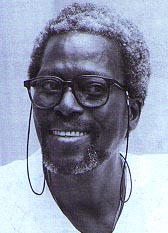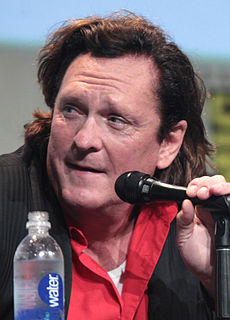Top 1152 Filmmaker Quotes & Sayings - Page 20
Explore popular Filmmaker quotes.
Last updated on December 22, 2024.
One has to choose between engaging in stylistic research or the mere recording of facts. I feel that a filmmaker must go beyond the recording of facts. Moreover, I believe that Africans, in particular, must reinvent cinema. It will be a difficult task because our viewing audience is used to a specific film language, but a choice has to be made: either one is very popular and one talks to people in a simple and plain manner, or else one searches for an African film language that would exclude chattering and focus more on how to make use of visuals and sounds.
I left film because I felt that photography was my art. It was something I could do on my own, whereas film was so collaborative. I thought as a photographer I could make something that was artistic and that was mine, and I liked that. And it wasn't until I got back into film and I have very small crews and I could do very tiny filmmaking that wasn't 100 people that I still felt that I was making something artistic as a filmmaker. So, you know, I'm an artist, and whether it's photography or film, I want my voice to be there and I think my voice is very strong in this film.
I went back to Jamaica after living in New York and started to work on experimental stuff and basically I grew as a filmmaker. I went to film school; I was a PA on a lot of projects and I worked so hard, you know, you're young and I learned from different mentors. And luck put me in the position to work with amazing people. One of my mentors by the name of Little X, who took me under his wing after I came out of film school and moved to New York. I worked in videos for Jay-Z, Pharrell to Busta Rhymes and Wyclef. I quickly realized how much I wanted to make films instead of music videos.
I think any filmmaker will tell you when they wandered from theater to theater to watch their prints, it was disheartening to see the poor levels of light and the disrespect for films that existed in certain theater chains. It was always inconsistent. And in the lab, too, the photochemical process was very difficult to watch, because sometimes they were shipping prints that you didn't even know were two points off or three points off. We suffered greatly to make these films, and they'd be out-of-focus, with the sound too low.
Well, he's got a much bigger circus to play with, and he has a lot more financing available, and he has a lot more time available. I think that makes a huge difference. I think he instinctively knows how to make films and all the different ways that you can make stuff. He's very gadget-wise, and he's very smart about all the different things that are available to a filmmaker nowadays, and he makes very good use of them. He has a theater in his house, for God's sake. It has proper curtains on it and everything. It's pretty wild.
Don't get seduced by your own stuff. Don't get high on your own supply. The hardest thing as a filmmaker is when you're watching a film that you've worked on for several years. You know every frame so intimately that holding lots of the objectivity of a new viewer who has just seen it for the first time is the hardest thing. Every aesthetic decision you make - and you make thousands of them every day, have to - in theory, must be done from you being a blank slate. You almost have to run a program, like a mind wipe, every time you watch the movie.
Ever since I've become a filmmaker, I'm traveling the world a lot. I feel like I'm a citizen of the world, yet there's no single place that I can put my roots down and call home. I don't own anything. I'm not a homeowner. I've always rented and never stayed in one place for long. Almost every time I rent a place, I have some sort of water leakage or flooding. Whenever that happens, I just move somewhere else. Even when I moved to Paris, my apartment started leaking after a month. Maybe the leaking is just part of my life, doomed to follow me around.
Why do we tell stories? It's because we want to connect to people, we want to tell them who we are, we want to tell them a story that affects us, that impacts us. And to help a young filmmaker doing a short or independent film is my testament, I think, is my desire to really make sure that our younger generations get passed along all the elders' experience and to literally have the image - to literally carry them on their shoulders and say, 'This is what the world is. This is how the world operates. Let me show you how.'
I always try to better myself with every movie I make. I don't take anything sitting back and so I try to learn from every film I make and carry that onto the next movie because I think it's important as a filmmaker to keep growing with each film and I think I am growing with each movie. And I think it's important because you need to strive to better yourself.
If you can create a reality that is entirely fictitious, it doesn't owe anything to this stuff out here, but you interact with it on your own terms. I mean, if you took it to the point where finally you get, say, tactile feedback, so you were wired in in terms of the whole nervous system. The sensorium. You would have the ultimate art form. I mean, any painter would want it, any filmmaker would want access to it you know, any musician would want access to it. It would eliminate the need for the divisions between what we describe as the arts, converting the whole thing to experience.
When I have a writing workshop, I like to have people that are anthropologists and people who are poking around in other fields, I like to have them all in the same workshop, and not worry about genre. I like to mix it up, because the kind of comments you can get from a fiction writer about your poetry are going to be very different than what you'll get from a poet. Or the comments you'll get from a filmmaker about your performance are going to be very different. My writing workshop is about mixing it up, cross-pollinating, not only in genres but in occupations.











